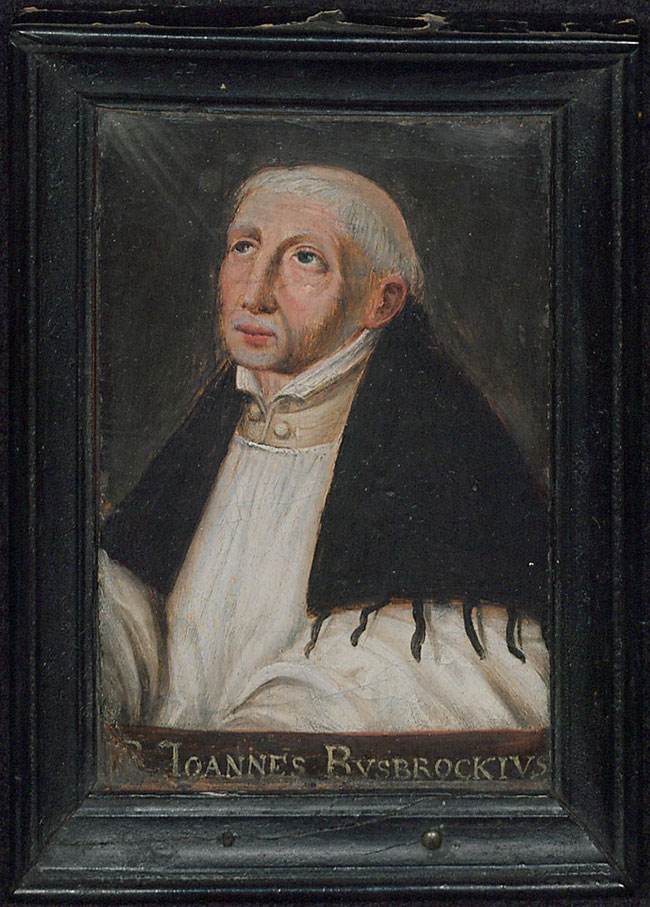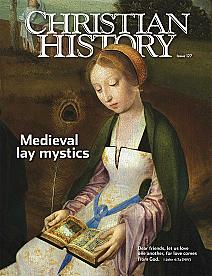A CRAVING FOR GOD DROVE RUYSBROEK TO SOLITARY CONTEMPLATION

[Above: Jan van Ruysbroek—Bibliothèque Universitaire d’Anvers Belgique / [CC-by-NC-SA] oraedes.fr]
JAN VAN RUYSBROEK claimed that he never put anything in to writing apart from the motion of the Holy Spirit. The famous French theologian Jean de Gerson was not so sure. He insisted that parts of Ruysbroek’s The Spiritual Espousals were heretical. He read Ruysbroek as teaching pantheism: that God is everything and everything God.
As a matter-of-fact, Ruysbroek did teach that Christians can experience union with God. But he stressed that while they become one with God through love, they do not become God:
If we remain wholly in ourselves, separated from God, we shall be miserable and unsaved; and so we ought to feel ourselves living wholly in God and wholly in ourselves, and between these two sensations we shall find nothing but the grace of God and the exercises of our love.
In his view, union with God would be achieved by spiritual contemplation, but he remarked wryly, “No other can understand me, for no man can teach contemplation to his fellow.” That did not stop him from trying in book after book. The Spiritual Espousals, considered his finest work, was an extended commentary on Matthew 25:6, “Behold, the bridegroom comes.”
Behold, the joys and the pleasures which this Bridegroom [Christ] brings with Him at His coming are boundless and without limit, for they are Himself.
Although two writers penned accounts of Ruysbroeks’s life, we know only the bare bones. He was born near Brussels in a town named Ruysbroeck. At eleven years of age, he left his mother to live with his well-to-do uncle John Hinckaert in Brussels. Through Hinckaert, who sought to live a life of apostolic simplicity, he received a religious education and became a priest. He, too, sought a life of frugality and simplicity.
It seems friction arose because of his manner and teachings. At any rate, he, his uncle, and their friend Francis van Coudenberg moved in 1343 to Groenendaal where they took over an abandoned hermitage in a forest. Eventually the trio formed an Augustinian monastery there.
Ruysbroek remained at Groenendaal the rest of his life, writing mystical books that earned him the nickname “Ecstatic Doctor.” On this day, 2 December 1381, Ruysbroek died. His writings influenced contemporaries such as John Tauler and Gerard Groote and subsequent religious writers such as Thomas à Kempis. Although Jean de Gerson condemned his thought, the church eventually decided he was no heretic. Pope Pius X beatified him in 1908.
—Dan Graves
--------
For more on Medieval mysticism, see Christian History 127 Medieval Lay Mystics






